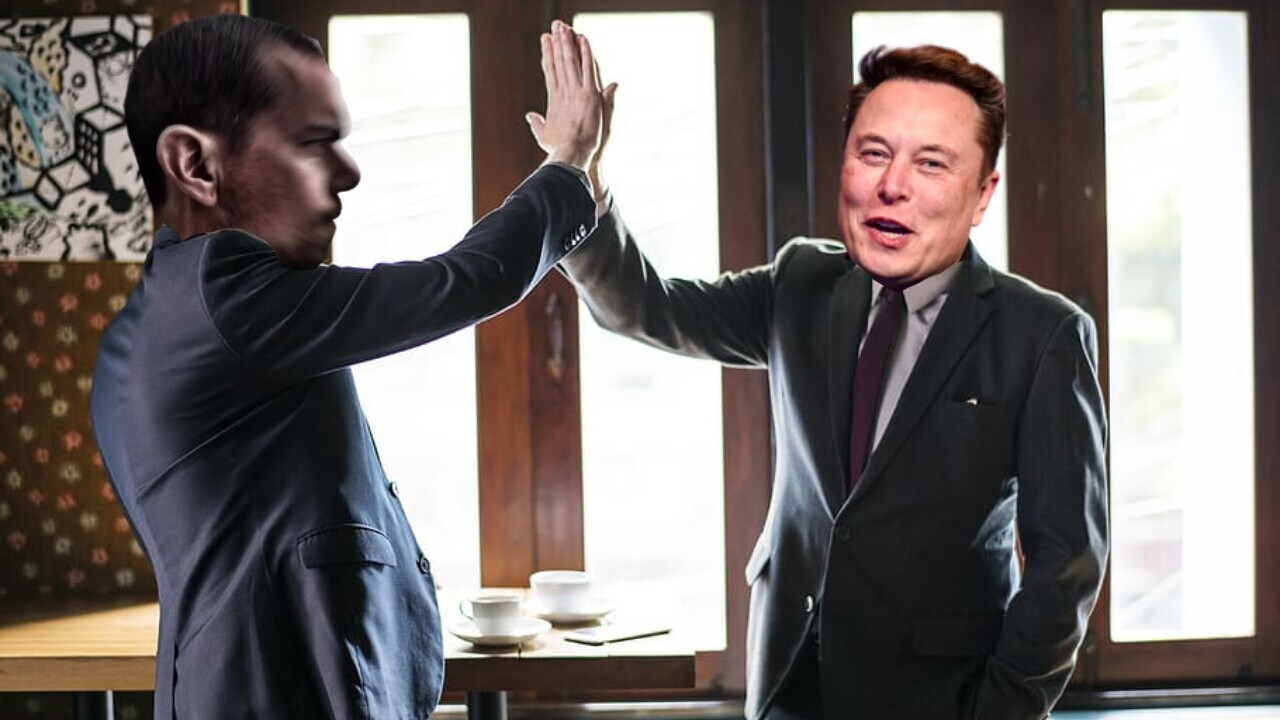It was the Easter weekend, and thankfully, the Elon Musk-Twitter saga took a break.
But we finally got to hear something about recent developments from Jack Dorsey, Twitter’s co-founder, ex-CEO, and outgoing board member, who weighed in on the issue with some non-direct tweets.
Some of them were directed toward the company’s board, and how it has operated over the years, and some of them talked about the potential decentralization of social media.
While the Bitcoin evangelist doesn’t fully agree with Musk on how Twitter should be operated, there’s some similarity in their vision. Let’s see how their visions compare.
Musk and Dorsey both hate the Twitter board
In the last few weeks, Musk has been very vocal about Twitter’s shortcomings as a platform. He nearly joined the company’s board, but decided against it within days.
His justification was that the company should be taken private in order to “go through the changes that need to be made.” So a board seat wasn’t enough for him make an impact on Twitter’s roadmap.
Over the weekend, Musk responded to a tweet that listed Twitter’s board members and their percentage ownership in the company. He said that once Dorsey departs, the board owns a negligent amount of shares, so their economic visions might not benefit the social network or shareholders.
Wow, with Jack departing, the Twitter board collectively owns almost no shares! Objectively, their economic interests are simply not aligned with shareholders.
— Elon Musk (@elonmusk) April 16, 2022
Dorsey had a less direct criticism of the company’s board. He positively responded to a tweet that had a quote about bad boards killing companies. In the same thread, he indicated with another tweet that Twitter’s board has been constantly a dysfunction of the firm for years.
big facts
— jack⚡️ (@jack) April 17, 2022
it’s consistently been the dysfunction of the company
— jack⚡️ (@jack) April 17, 2022
no
— jack⚡️ (@jack) April 17, 2022
Notably, the Twitter co-founder was fired from the CEO post back in 2008. He returned in 2015, and enjoyed a longer tenure. When he quit as CEO last year, reports speculated that former board member Elliott Management had a significant hand to play in this move.
Maybe we’ll see Dorsey open up more about the Twitter board once he’s officially retired from it.
Opening Twitter’s algorithm
Last week, speaking at TED 2022, Musk said he wants to make Twitter open-source, and put the code on Github, so there’s more transparency about what action the company takes on them.
This doesn’t really solve any problems with moderation or hate speech, as Twitter follows different rules in various countries and situations. As humans making moderation-based decisions have a contextual understanding, it’s hard for an algorithm to evaluate these complex scenarios.
Dorsey agreed with some of Musk’s criticism of Twitter (and social media), but he had a slightly different take than just hosting the code on Github.
Earlier this month, he admitted that he has played a part in the centralization of the internet.
the days of usenet, irc, the web…even email (w PGP)…were amazing. centralizing discovery and identity into corporations really damaged the internet.
I realize I'm partially to blame, and regret it.
— jack⚡️ (@jack) April 2, 2022
Over the last few years, the Square (now Block) co-founder has been a big proponent of decentralizing social media and giving users choices in terms of content discovery algorithms.
When he was Twitter CEO, he announced a new undertaking called Bluesky in 2019.
Twitter is funding a small independent team of up to five open source architects, engineers, and designers to develop an open and decentralized standard for social media. The goal is for Twitter to ultimately be a client of this standard. ?
— jack⚡️ (@jack) December 11, 2019
The project, now an independent entity funded by the social network, aims to build a decentralized and open protocol for social media that can solve problems like centralized enforcement of content takedown policy to promoting content that sparks controversy.
Over the weekend, he responded to a tweet that pointed out a post encouraging Twitter to open up its algorithm, indicating that he’s been wanting to do that. He also argued that it’s the only large social media service that has allowed people to turn off the algorithm, referring to the feature that lets you switch to a reverse-chronological timeline.
yep
— jack⚡️ (@jack) April 15, 2022
Dorsey opined about removing people from social media platforms too. He acknowledged that permanent bans are a failure for a social media company, even if they are the right decisions at that time. Dorsey pointed out that decentralized protocols could bring amicable solutions to deplatforming.
as I said in a thread on the event, I believe all permanent bans are a failure of the company. But likely right decision for the the company. Wrong for technology underlying the service. Hence @bluesky
— jack⚡️ (@jack) April 16, 2022
In another tweet, he supported Ethereum co-founder Vitalik Buterin’s view that wealthy individuals shouldn’t own social media or media firms.
same
— jack⚡️ (@jack) April 16, 2022
I’m don’t believe any individual or institutions should own social media, or more generally media companies. It should be an open and verifiable protocol. Everything is a step toward that.
— jack⚡️ (@jack) April 16, 2022
Dorsey, still on the Twitter board, is already prompt in criticizing the company’s current direction. He might not agree with Elon’s absolute vision for Twitter, but his tweets indicated that he’s not thinking in an opposite direction.
Both of these tech personalities joined hands last year in criticizing Web3’s vision. I hope we both of them get together over a live discussion about Twitter on Twitter Spaces. Make it happen universe.
Get the TNW newsletter
Get the most important tech news in your inbox each week.





